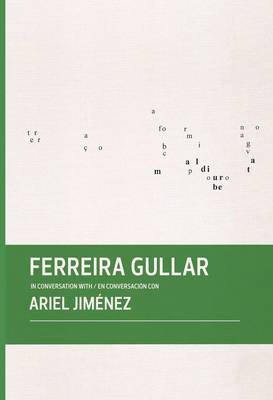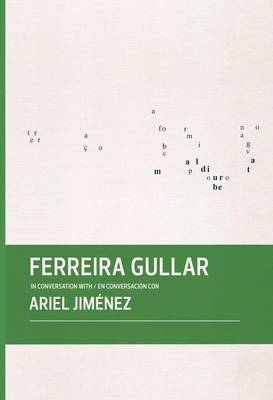
Je cadeautjes zeker op tijd in huis hebben voor de feestdagen? Kom langs in onze winkels en vind het perfecte geschenk!
- Afhalen na 1 uur in een winkel met voorraad
- Gratis thuislevering in België vanaf € 30
- Ruim aanbod met 7 miljoen producten
Je cadeautjes zeker op tijd in huis hebben voor de feestdagen? Kom langs in onze winkels en vind het perfecte geschenk!
- Afhalen na 1 uur in een winkel met voorraad
- Gratis thuislevering in België vanaf € 30
- Ruim aanbod met 7 miljoen producten
Zoeken
€ 32,95
+ 65 punten
Omschrijving
As an art critic, political essayist, playwright and poet, Ferreira Gullar (born 1930) has been a key figure in the Brazilian cultural scene of the last 60 years. His extensive poetic output has been closely intertwined with his work as an art critic, from his first major collection of poems in 1954, through his Concrete and Neoconcrete poems from 1957 to 1959 and the "Neoconcrete Manifesto" and the "Theory of the Non-Object" of 1959. All are now essential reference texts in Brazilian and Latin American literature, deeply influencing generations of artists. This publication presents conversations conducted over the past two years between Gullar and art historian Ariel Jiménez. Gullar discusses everything from his childhood and early education in San Luis to his current writing, providing a full picture of this influential Brazilian poet and intellectual.
Specificaties
Betrokkenen
- Auteur(s):
- Uitgeverij:
Inhoud
- Aantal bladzijden:
- 272
- Taal:
- Engels
Eigenschappen
- Productcode (EAN):
- 9780982354452
- Verschijningsdatum:
- 31/07/2012
- Uitvoering:
- Hardcover
- Formaat:
- Genaaid
- Afmetingen:
- 155 mm x 236 mm
- Gewicht:
- 861 g

Alleen bij Standaard Boekhandel
+ 65 punten op je klantenkaart van Standaard Boekhandel
Beoordelingen
We publiceren alleen reviews die voldoen aan de voorwaarden voor reviews. Bekijk onze voorwaarden voor reviews.









